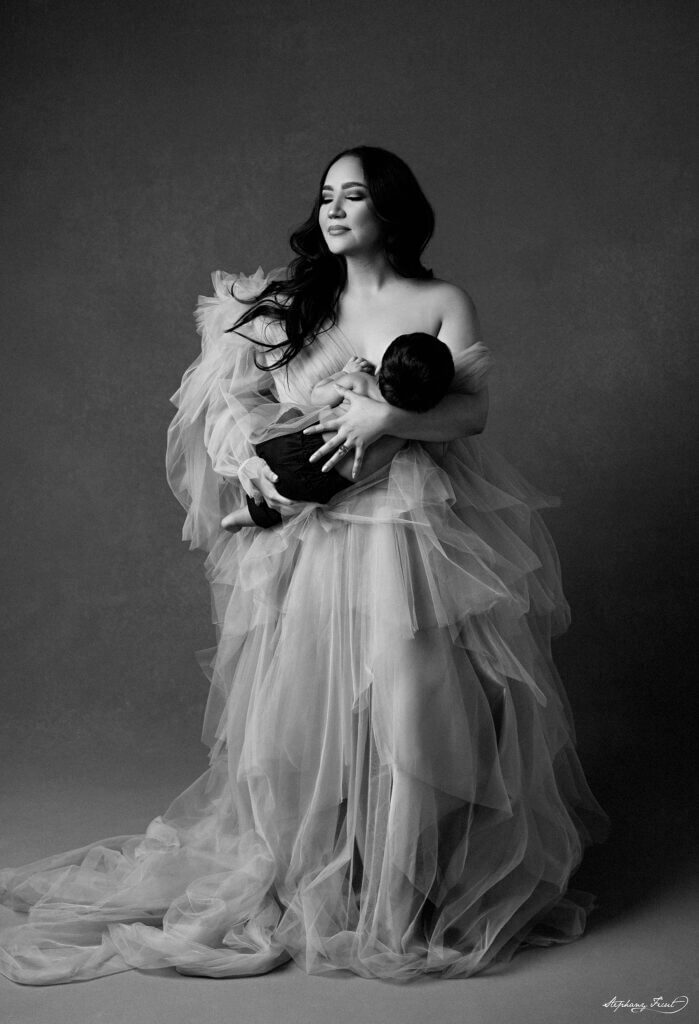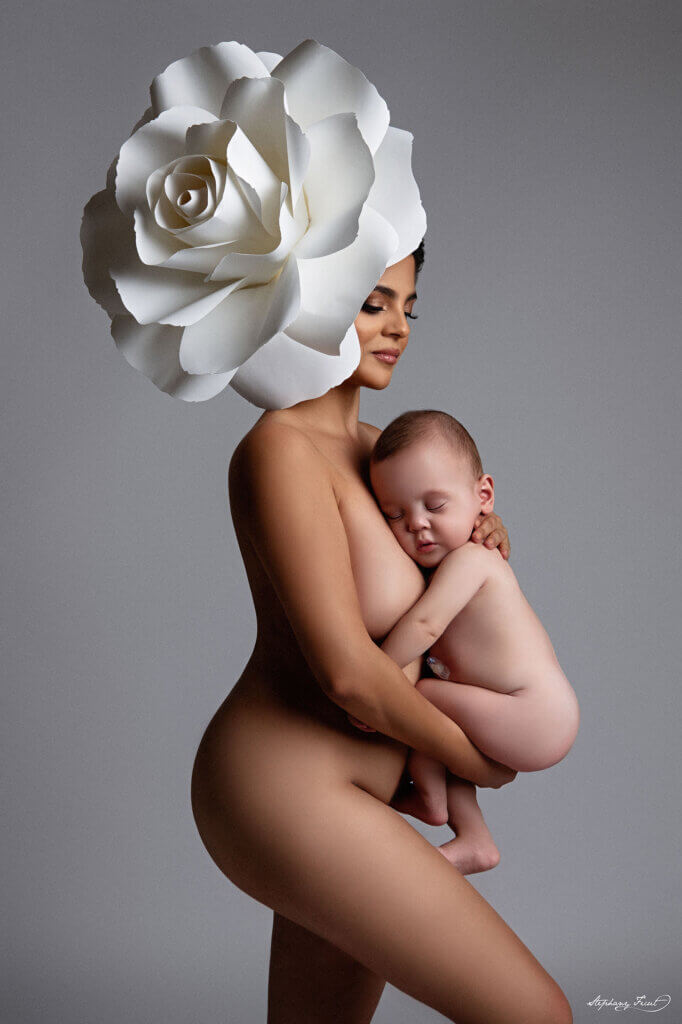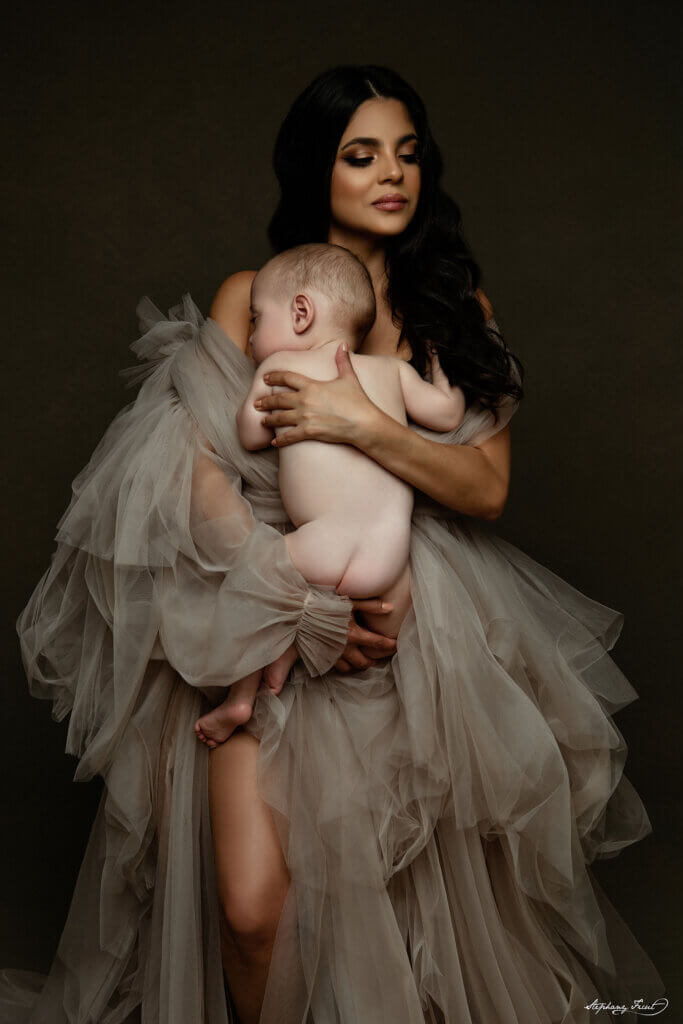
Menu
Recently I’ve asked all the mamas on social media what might be one thing they wish they had known more about before having their baby. I've received so many answers for all sorts of different topics, but the most popular of them all was about postpartum depression.
If you’ve just given birth and feel like you don’t love or care for your baby, you have constant mood swings and burst out crying—then you might have the baby blues. It usually lasts a few days after the delivery.
It’s pretty common as it affects around 70-80% of women, and it’s not considered a severe condition. Even dads are affected by the baby blues, usually due to stress and exhaustion. Baby blues go away on their own, and you’ll likely feel better in a few days.
However, postpartum depression (or postnatal depression) lasts longer than the first two weeks. It is a mood disorder associated with childbirth that occurs due to a combination of hormonal changes, psychological adjustments, fatigue, or even trauma due to birth complications or unplanned C-sections.
It’s good to know that postpartum depression is not hereditary (Corwin et al., 2018). So, don’t beat yourself up if you’re experiencing it—it’s not helpful to the recovery process.
But can you prevent it? Some things are unpredictable, such as stressful life events or depression during pregnancy. But you can certainly lower the risk by leading a healthy lifestyle—by not drinking alcohol, getting enough rest, eating nutritious food, exercising, and thanks to a support system from your loved ones.
Statistics show that 1 in 10 women experience at least one type of postpartum depression. Did you know there’s such a thing as paternal postpartum depression? About 4% of fathers experience it at one point in parenthood (Davé et al., 2010).
Postpartum depression affects different women in different ways, and there are ways to deal with it. Postpartum depression can last from months to a few years. Full recovery is possible, and 80% recover through lifestyle changes—rest, self-care, diet, and exercise. Doctor visits and medication also help with recovery.
I realized there aren't many new parents who are aware of what this is and how exactly to deal with it, so I asked moms to share their stories in hopes that we can bring awareness and let all mothers that are going through this know that it's ok.
The recovery process is deeply personal, and it’s not a one-size-fits-all. Many moms shared their incredible stories, and Tania's experience is one I'd like to share.

"I think the main reason for my postpartum depression was the emergency C-section I had to have.
My first baby was delivered vaginally, but the epidural didn't work on my body very well, and I was only numb halfway. That was terrifying! I prepared mentally for the second delivery, telling myself that the epidural wouldn’t work well again. I was so brave when it was time for this second baby! I was in labor for 18 hours, and everything was going great! The epidural actually worked this time, but unfortunately, things went downhill from there.
My baby turned, and my cervix got swollen, which was why I had to be taken to the OR for an emergency C-section. That was the moment when I accepted that I had to do whatever I needed for my baby. I thought I accepted the fact that I had to get cut open.
When my baby was born, I was asked if I wanted him on my chest, and I said no. Not because I didn't want him but because I felt defeated. All that was going through my head was, "18 hours in labor just to end up being cut open"... This followed me for months to come.
Coming home was the worst! The fact that I needed help to get on and off the bed killed me. I felt vulnerable.
I reached out to a few moms that had C-sections, and they all told me, "it will take time". I tried taking it day by day, one step at a time, but there was not a day when I wouldn't cry. I hated having people over because I'd feel anxious around them, yet I would cry when they'd leave. I cried and cried when my husband went back to work, and I felt so lonely. I felt helpless, even worthless!
Anxiety started to creep on me when the baby was about two weeks old. I felt helpless hearing him cry. It hurt carrying him. I honestly don’t know what I would’ve done without my husband. I would get so mad at him because I really wanted to be in his shoes. I didn't understand why I had to deal with the recovery of the C-section and how it was possible that my baby was only calm with him and not with me.
Every day was a battle. For my 6th week appointment, I was tested for depression, and I was told to seek help because I had PPA (Postpartum Anxiety). Me, being a pharmacy tech and knowing the side effects of anti-depressants and anti-anxiety meds, I refused to go to a professional. I tried handling it all by myself the ‘natural’ way.
Through these months, I felt like a burden. When anxiety crept on me, I questioned if my family was better off without me. I felt that my husband deserved someone better because he was doing so much for me! I didn't know it then, but that was just my anxiety/depression playing with me!!!
I tried talking to family and friends about the way I felt. My husband knew what was going on, but sometimes he didn’t know how to help. His support was more than enough, though! He pushed me to make time for myself (pedicures, eating out with my girlfriends, and so on). He would even stay with the baby at night so that I could get a full night’s sleep in the guest room.
Through all those months of fighting postpartum depression and trying to feel like my old self again, I was extremely thankful for my husband and the people around me that were trying to help me feel better.
Now, after a year, I know that it wasn’t really me feeling all of that. I would say that it took me about one full year to feel completely normal again—no medicine, no professional help, just lots of support from my husband mainly and lots of self-focus and self-loving, but most importantly, GOD!!! Every time that anxiety tries to follow me again, I pray and pray and pray, and it all goes away. Every time I talk to someone about this experience, I cry. I even cried writing you this. The way my mentality was a year ago and how it is now—it’s a whole different mind!!! I’m amazed!!!
My advice to all the moms in the dark is to NEVER EVER be ashamed of the way you feel and speak up!
I even had a calendar fixed up all pretty each month to kind of motivate myself to look forward to something every day, even if it was grocery day. Up to this day, I keep up with that calendar on my fridge.
Do whatever you need to make you look forward to something. Accepting that you are not ok is the most important step into feeling yourself again, so just take it one day at a time!



Thank you to Tania for sharing her incredible story with us. I hope more moms can realize that they are not alone, and going through postpartum depression doesn't make you any less of an amazing mother you already are!
Award winning professional photographer specializing in maternity and newborn photography in Dallas/Fort Worth, Texas
Award winning professional photographer specializing in maternity and newborn photography in Dallas/Fort Worth, Texas